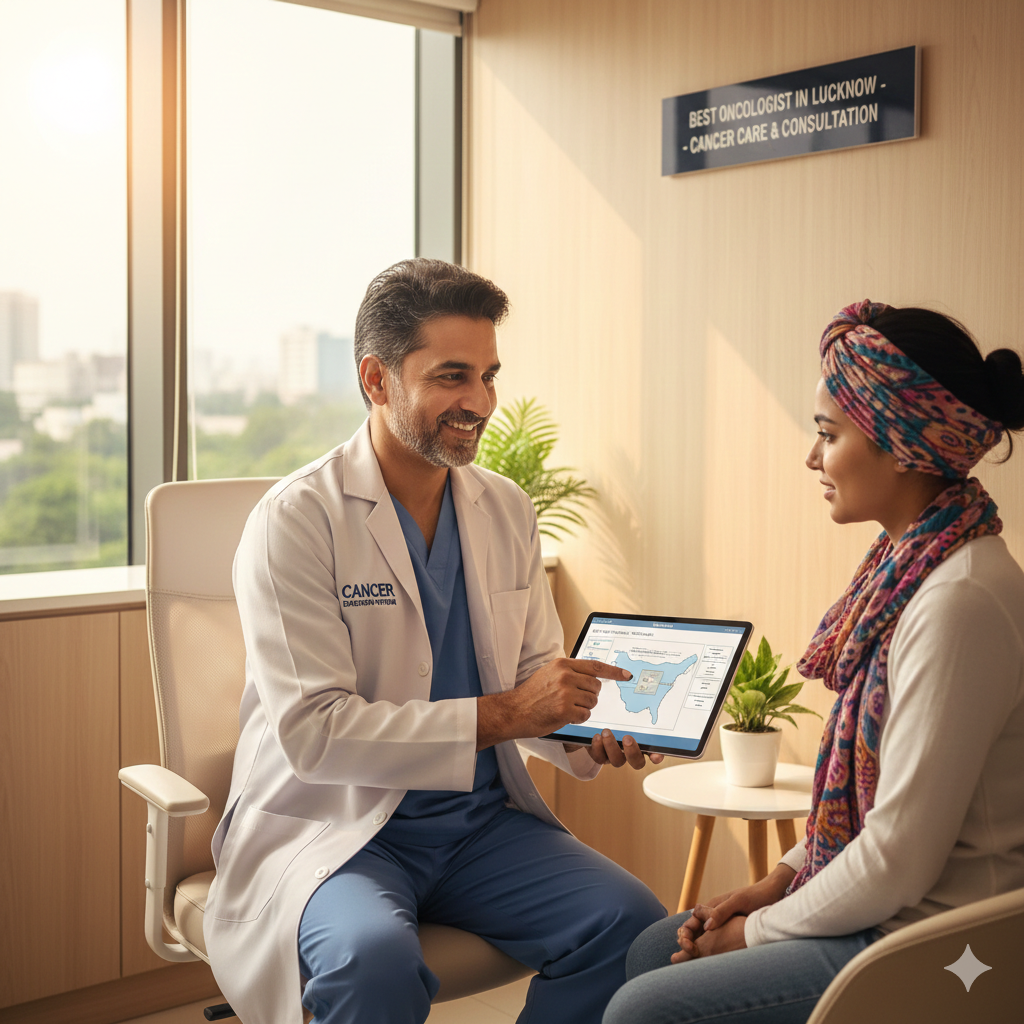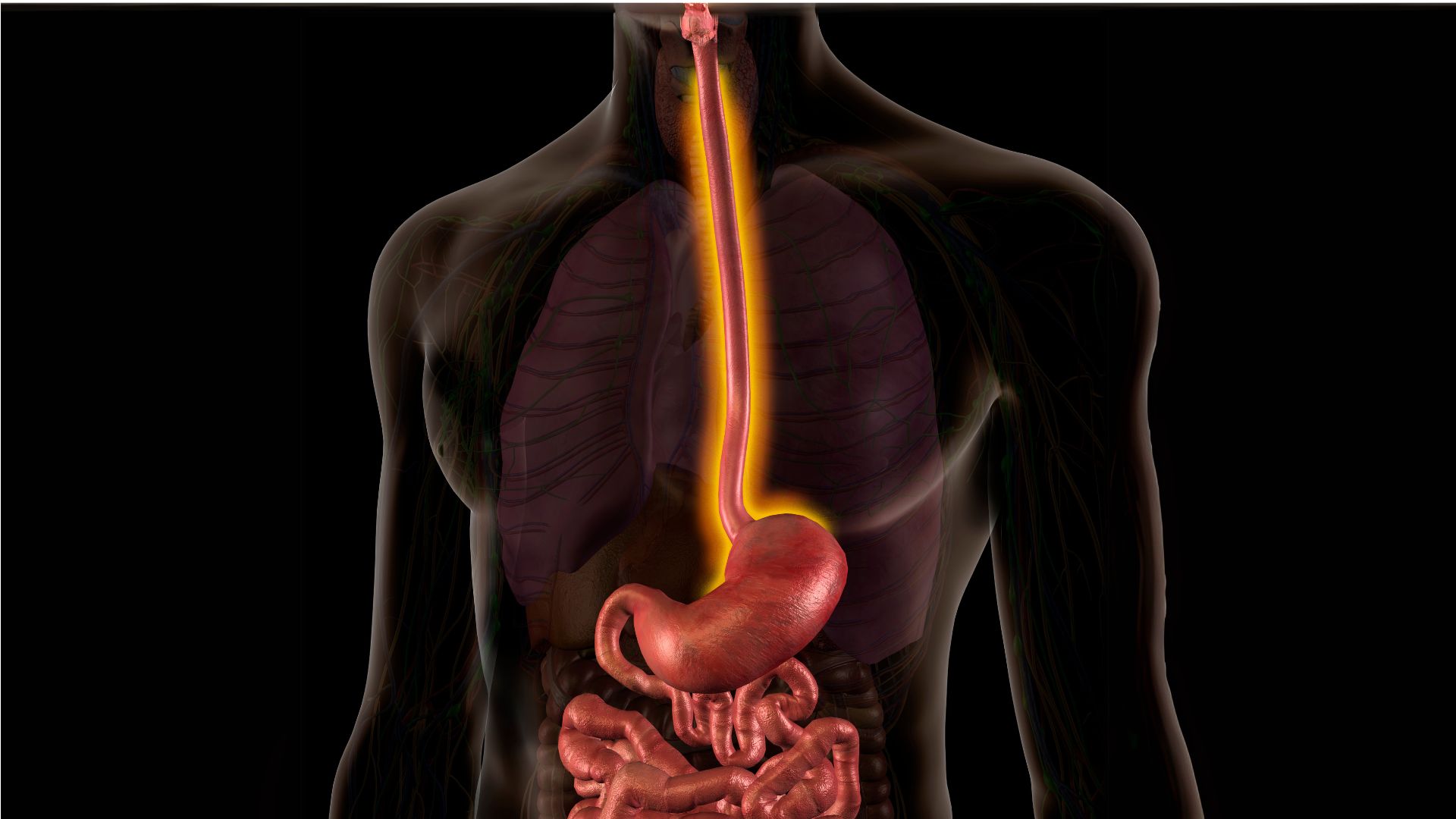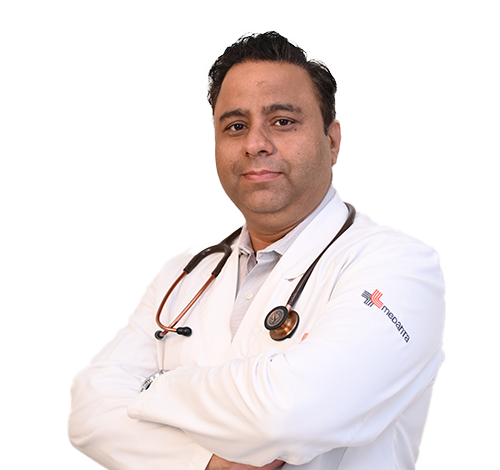Esophageal Cancer: A Rising Threat You Shouldn’t Ignore
Expert Insights from an Esophageal Cancer Specialist in Lucknow
Esophageal cancer, though less common than other malignancies, ranks among the deadliest due to its subtle symptoms and late-stage diagnosis. It begins in the inner lining of the esophagus and often progresses silently until it has already advanced, making early detection critical yet challenging. As awareness grows, timely consultation with an experienced esophageal cancer specialist in Lucknow can make a life-saving difference.
Global and Indian Burden of Esophageal Cancer
In 2022, over 604,000 new cases of esophageal cancer were diagnosed globally, placing it as the 7th most common cancer and the 6th leading cause of cancer-related deaths worldwide. The disease shows particularly high prevalence in parts of Asia and Sub-Saharan Africa, with countries like China and Iran reporting the highest incidence.
In India, esophageal cancer is the 6th most common cancer in men, particularly prevalent in the northeastern and southern regions. Factors such as tobacco use, alcohol consumption, poor dietary patterns, and delayed diagnosis significantly contribute to its burden. For individuals experiencing persistent throat discomfort or difficulty swallowing, timely evaluation by an esophageal cancer specialist in Lucknow is essential.
What Causes Esophageal Cancer?
Esophageal cancer develops from the inner lining of the esophagus and can grow outward, invading surrounding structures. The two main types are squamous cell carcinoma and adenocarcinoma. Squamous cell carcinoma often affects the upper and middle sections of the esophagus and is heavily linked to tobacco and alcohol use. In contrast, adenocarcinoma usually occurs near the junction where the esophagus meets the stomach and is associated with obesity, chronic GERD, and Barrett’s esophagus.
Other risk factors include frequent consumption of very hot beverages, poor intake of fruits and vegetables, certain viral infections like HPV, and rare esophageal motility disorders like achalasia. Prevention involves addressing these factors head-on—quitting tobacco and alcohol, managing reflux effectively, and maintaining a balanced diet are among the most effective strategies.
If you fall into a high-risk group, regular consultation with an esophageal cancer specialist in Lucknow can help you stay ahead of this disease through surveillance and preventive strategies.
Symptoms That Should Never Be Overlooked
Unfortunately, early symptoms of esophageal cancer are often vague or absent. However, early detection dramatically improves outcomes.
Watch out for:
- Progressive difficulty swallowing (dysphagia) – first with solids, then liquids.
- Unexplained weight loss
- Retrosternal chest pain or burning
- Persistent cough or hoarseness
- Regurgitation of undigested food
- Vomiting blood or passing black stools
If you experience these symptoms, especially in combination, consult an esophageal cancer specialist in Lucknow immediately. Studies show over half of patients are diagnosed when the cancer has already become locally advanced or metastatic.
Early Detection and Diagnosis
There is currently no standard screening test for the general population, but high-risk individuals—such as those with Barrett’s esophagus, chronic GERD, or a history of tobacco and alcohol use—should undergo timely evaluations.
An upper gastrointestinal endoscopy (EGD) allows doctors to visualize the esophagus directly and take a biopsy if any suspicious areas are found. Other imaging tools like barium swallow X-rays, endoscopic ultrasound (EUS), and CT or PET-CT scans help assess tumor size, depth, and potential spread. These diagnostic tools, when interpreted by an experienced esophageal cancer specialist in Lucknow, form the basis of a precise and individualized treatment approach.
Types and Staging of Esophageal Cancer
Esophageal cancer is classified into stages using the TNM (Tumor, Node, Metastasis) system. The earliest stage, carcinoma in situ (Stage 0), involves abnormal cells confined to the inner lining. As the disease progresses, it can grow through the layers of the esophageal wall (Stages I–III) and eventually spread to distant organs like the liver, lungs, or brain (Stage IV).
Understanding the stage of cancer is essential for choosing the right treatment. At every stage, a skilled esophageal cancer specialist in Lucknow will evaluate not just the cancer’s extent but also the patient’s overall health, nutrition, and readiness for treatment.
Treatment Options Tailored to the Stage
In the early stages (Stage 0 and I), minimally invasive procedures such as endoscopic mucosal resection (EMR) or endoscopic submucosal dissection (ESD) may be sufficient. For slightly more advanced cases, surgical removal of the esophagus (esophagectomy) remains the gold standard.
In locally advanced stages (Stage II and III), a combined approach is often used. Neoadjuvant chemoradiation, which includes chemotherapy and radiotherapy before surgery, can shrink the tumor and improve surgical outcomes. The CROSS protocol, which combines carboplatin and paclitaxel with radiation, is widely used in such scenarios. After surgery, patients undergo regular monitoring to catch any signs of recurrence.
Stage IV esophageal cancer, which involves distant metastases, is generally treated with systemic therapies. Chemotherapy regimens such as FOLFOX or cisplatin with 5-FU are commonly used. For HER2-positive tumors, targeted therapies like trastuzumab have shown promise. Immunotherapy drugs such as nivolumab and pembrolizumab are now used in tumors that express PD-L1 or have high microsatellite instability (MSI-H).
Each case is unique, and treatment decisions must be made collaboratively with a knowledgeable esophageal cancer specialist in Lucknow, who can personalize therapy based on genetic markers, tumor biology, and patient preferences.
The Promise of Precision Oncology
Modern cancer care is increasingly guided by molecular profiling. Testing for markers like HER2, PD-L1, and MSI-H can help tailor treatment to the tumor’s genetic characteristics. For example, HER2-positive adenocarcinomas can benefit from trastuzumab, while PD-L1 positive tumors may respond well to immunotherapy.
Clinical trials like CheckMate 577 have demonstrated that immunotherapy can significantly improve outcomes when used after surgery and chemoradiation in certain high-risk patients. This level of precision ensures that patients receive therapies that are not only more effective but also more tolerable.
If you or a loved one is undergoing treatment, be sure to ask your esophageal cancer specialist in Lucknow about molecular testing and targeted treatment options.
Prevention and Lifestyle Changes
The best way to fight esophageal cancer is to prevent it before it starts. You can lower your risk by avoiding tobacco and alcohol, managing acid reflux effectively, maintaining a healthy weight, and eating a diet rich in fruits and vegetables. People with chronic GERD or Barrett’s esophagus should undergo regular surveillance endoscopies.
Avoiding very hot beverages and increasing antioxidant intake are additional steps that support esophageal health. If you are at elevated risk, a preventive consultation with an esophageal cancer specialist in Lucknow can offer long-term peace of mind.
Final Thoughts: Listen to Your Body
Esophageal cancer is highly treatable when caught early—but tragically, most patients present too late. Persistent difficulty swallowing, unexplained weight loss, or constant acid reflux should never be ignored.
The message is simple: If something feels wrong, get it checked. A brief consultation with an experienced esophageal cancer specialist in Lucknow could mean the difference between early detection and a late-stage diagnosis.
Book Your Appointment Now
If you or someone you love has been struggling with persistent swallowing issues, chronic reflux, or unexplained weight loss, don’t wait. Schedule a consultation with a top esophageal cancer specialist in Lucknow today.












